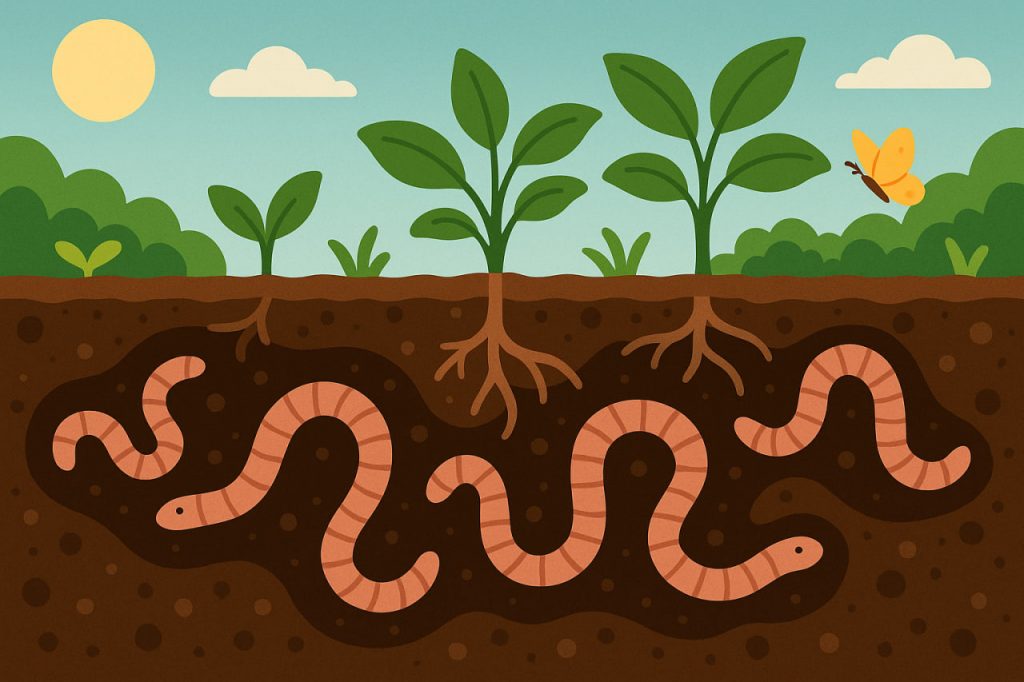Earthworms are small but mighty engineers of the soil ecosystem. These humble creatures play a crucial role in maintaining soil health, supporting plant growth, and enhancing agricultural productivity. Their natural activities improve soil structure, nutrient availability, and water retention, making them essential partners in sustainable farming and gardening.
1. Soil Aeration
As earthworms burrow through the soil, they create a network of tunnels. This aeration allows oxygen to reach plant roots and beneficial microorganisms, which is vital for healthy plant growth.
2. Nutrient Recycling
Earthworms feed on organic matter such as dead leaves and plant residues. As they digest this material, they break it down into simpler forms, producing worm castings rich in essential nutrients like nitrogen, phosphorus, and potassium. These nutrients are easily absorbed by plants.
3. Improved Soil Structure
The movement of earthworms mixes soil layers, creating a crumbly texture that prevents compaction. This structure improves root penetration and enhances soil stability, reducing erosion risk.
4. Enhanced Water Infiltration
The burrows made by earthworms act as natural drainage channels, allowing rainwater to infiltrate the ground more efficiently. This helps prevent waterlogging and increases the soil’s capacity to store moisture during dry periods.
5. Support for Microbial Life
Worm activity fosters a thriving community of beneficial microorganisms. These microbes break down organic matter even further, improving soil fertility and plant health.
6. Indicator of Soil Health
The presence of a healthy earthworm population often indicates fertile and well-balanced soil. Farmers and gardeners use earthworm counts as a natural measure of soil quality.
7. Role in Sustainable Agriculture
By naturally improving soil without chemicals, earthworms reduce the need for synthetic fertilizers. This aligns with eco-friendly farming practices and supports long-term soil productivity.
Conclusion
Earthworms are indispensable allies in maintaining healthy ecosystems. Their constant work beneath the surface creates fertile, well-structured, and moisture-retaining soil—key elements for successful farming and gardening.
Glossary
- Worm castings – Nutrient-rich waste produced by earthworms.
- Soil aeration – The process of allowing air to circulate within the soil.
- Organic matter – Decomposed plant and animal material in the soil.
- Soil compaction – The compression of soil particles, reducing pore space.
- Microorganisms – Microscopic life forms that contribute to soil health.


